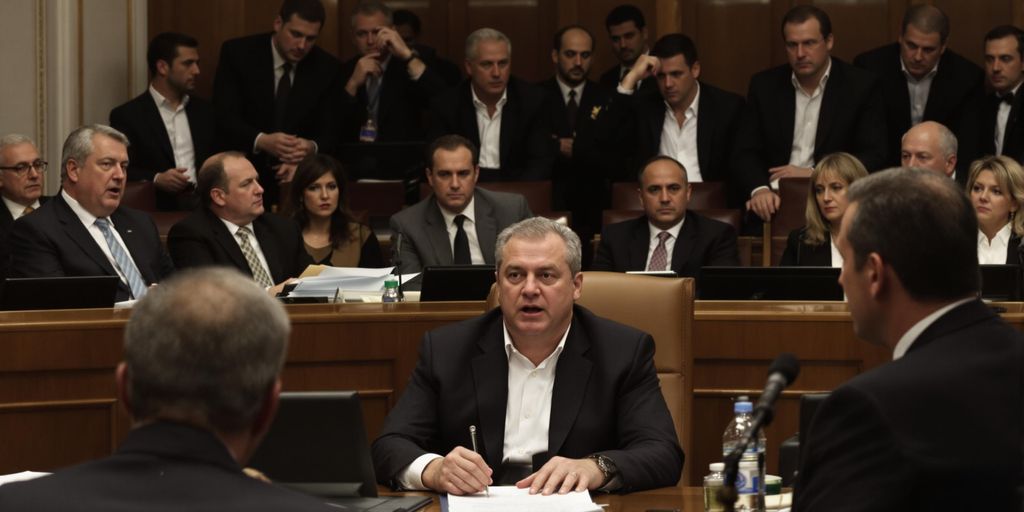Prosecutors in Bosnia have called for a near five-year prison sentence for Milorad Dodik, the leader of the Bosnian Serb entity, Republika Srpska. This trial is seen as a critical test of the central government’s authority to hold powerful politicians accountable, particularly in light of Dodik’s defiance of international oversight following the 1990s war.
Key Takeaways
- Milorad Dodik faces charges for defying the High Representative of Bosnia, Christian Schmidt.
- Prosecutors are seeking a five-year sentence and a ten-year ban from public office.
- Dodik’s actions challenge the legitimacy of the peace agreements that ended the Bosnian War.
Background of the Case
Milorad Dodik, a prominent nationalist figure, has been a significant player in Bosnian politics for nearly two decades. His leadership of Republika Srpska has been marked by a series of controversial decisions that have raised tensions within the already fragile political landscape of Bosnia and Herzegovina.
In 2023, Dodik enacted two laws that were previously annulled by Christian Schmidt, the High Representative tasked with overseeing the implementation of the Dayton Agreement, which ended the Bosnian War. These laws rejected the authority of both Schmidt and Bosnia’s constitutional court, further deepening the political divide in the country.
Charges Against Dodik
Dodik is charged with non-compliance with the decisions made by the High Representative. Prosecutor Nedim Cosic has requested a sentence close to the maximum of five years in prison, along with a ten-year prohibition from holding any public office. Milos Lukic, the head of the RS Official Gazette, who published the contested laws, is facing similar charges.
Dodik’s Defense
Dodik’s legal team has characterized the trial as politically motivated, arguing that it aims to eliminate him from the political arena. His lawyer, Goran Bubic, has called for Dodik’s acquittal, asserting that the trial is a direct attack on his political career.
In court, Dodik has repeatedly challenged the legitimacy of Schmidt’s position, claiming that Schmidt was not legally elected and that his authority to modify the Bosnian criminal code is invalid. He insists that only the Bosnian Parliament has the power to enact or amend laws, dismissing the charges as a political maneuver.
Implications for Bosnia
The outcome of this trial could have significant implications for Bosnia and Herzegovina’s political stability. It tests the central government’s ability to enforce the rule of law against influential political figures who openly defy international oversight. The verdict is expected to be announced on February 26, 2025, and will likely influence the future of governance in the region.
As the trial unfolds, it highlights the ongoing challenges faced by Bosnia in reconciling its complex political landscape, where ethnic divisions and historical grievances continue to shape the nation’s governance and societal cohesion.
Sources
- Call for ‘maximum’ sentence for Bosnian Serb leader, RFI.
- Call for ‘maximum’ sentence for Bosnian Serb leader | National | elpasoinc.com, El Paso Inc..
- Call for ‘maximum’ sentence for Bosnian Serb leader | Nation | iosconews.com, Iosco County News Herald.
- Call for ‘maximum’ sentence for Bosnian Serb leader, MSN.
- Call for ‘maximum’ sentence for Bosnian Serb leader | National News | themountainpress.com, The Mountain Press.





